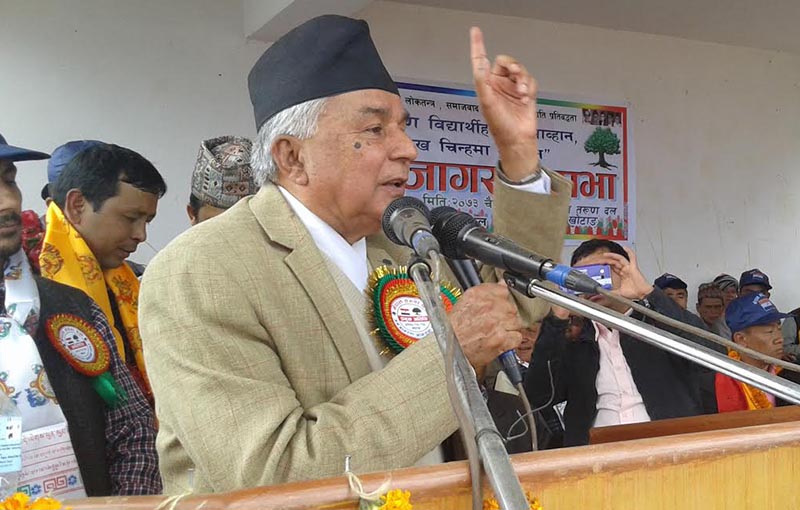‘NC leadership not abiding by party statute’
Kathmandu, January 8
Leaders of a faction of the Nepali Congress led by senior leader Ramchandra Paudel today attributed the party’s loss in the recently-held provincial and parliamentary elections to the leadership’s failure to run the party in line with its statute.
Stating that the party’s parliamentary board and Central Work Execution Committee were formed in violation of the party’s statute, the leaders demanded that these two bodies be reconstituted.
The NC has a 24-member parliamentary board which was formed ahead of elections to finalise candidates. The board, however, should have had only 14 members as per the party’s statute. The CWEC consists of 29 senior leaders of the Central Working Committee.
The leaders also demanded that a CWC meeting be held immediately to intensively discuss the election loss, ineffective role of the party’s sister organisations during the elections, the leadership’s failure to forge pan-Nepal democratic alliance and nepotism and favoritism during election ticket distribution.
In a meeting of 14 NC CWC members close to Paudel held today in Kathmandu, the leaders were also of the view that the NC had failed to effectively provide training to its cadres due to which they could not effectively communicate the party’s agenda to the voters, resulting in the loss.
The meeting also discussed weaknesses in the party’s policies and how to make the party robust in the post-election context. “We discussed that the debate over the party’s revival should be taken to the lowest rung of the party structure,” said NC leader Nabindra Raj Joshi who participated in the meeting. “We are of the view that the party should be able to attract youth voters for its rejuvenation.”
Joshi said today’s meeting was just a beginning and would continue in the days to come discussing ways for the party’s revival. “We will also continue discussions on the challenges posed by the left alliance and how to face it,” he said. “We are not in a hurry to come to a conclusion since this serious issue needs serious discussions.”






